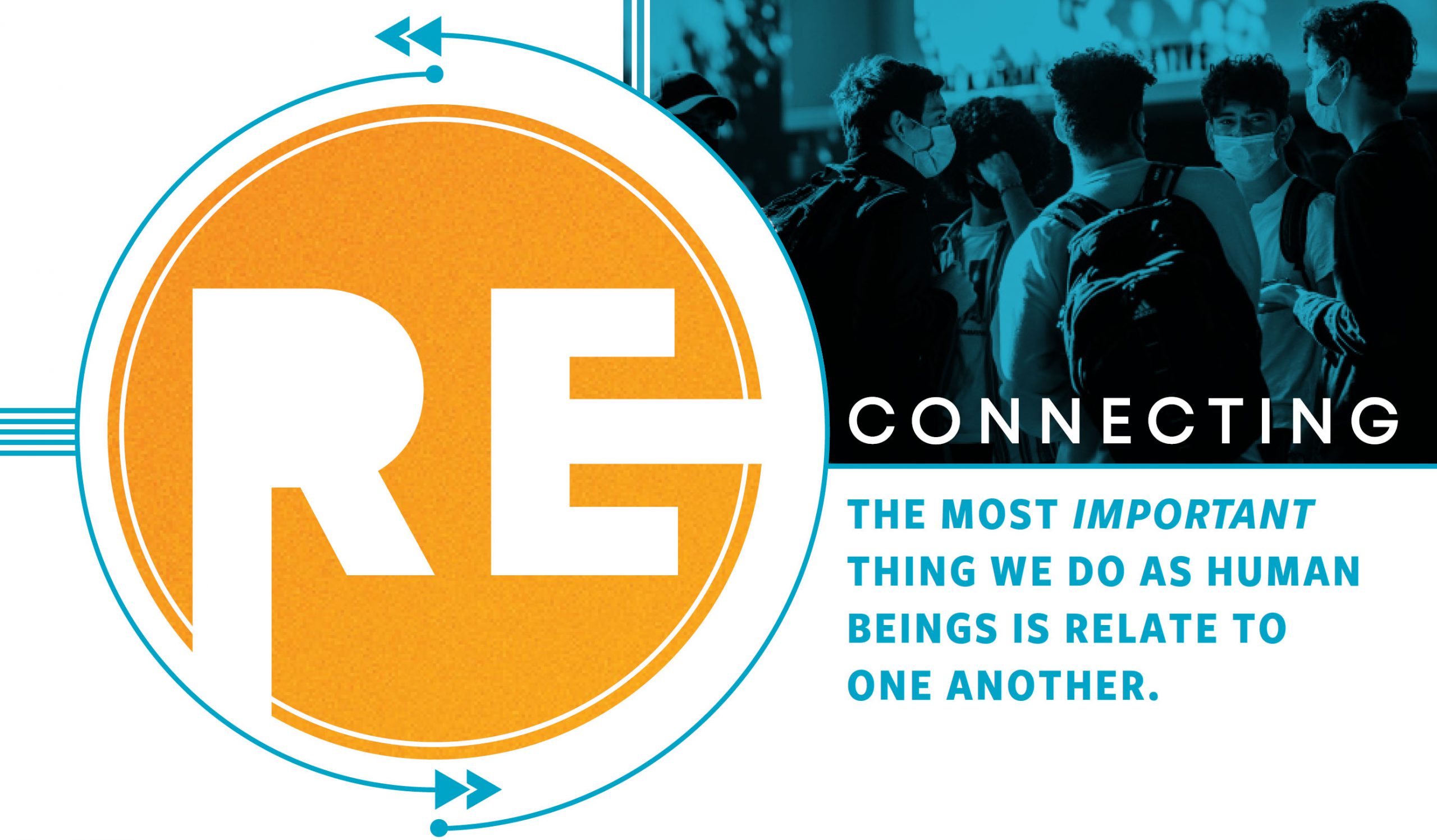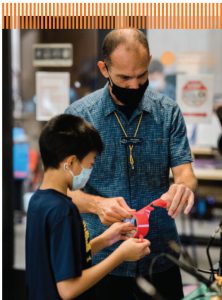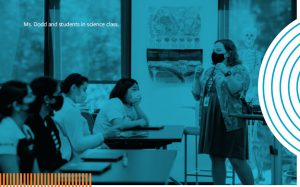
By Dr. Terry Macaluso, Head of School
For serveral years now, there has been ongoing conversation about the likelihood that digital education would be the way of the future, and that schools—especially independent schools—should be alert to their coming obsolescence. It was thought by some that content delivery would be more efficient and much more economical if we made our computer screens the new one-room schoolhouse.

ENTER: COVID
Of all the things we’ve learned over the past two years, the most powerful lesson has been recognition of the need for social interaction. People need other people. The most important thing we do as human beings is relate to one another. …and the most complicated thing human beings do is relate to one another.
If there was ever a doubt that education is a relational enterprise, COVID has resolved the question definitively. From the earliest days of the pandemic, we began thinking and talking about the impact COVID would have on our culture as a high-trust, respectful, and humor-loving community. As the days and weeks wore on, our discussions about culture became darker and darker.
When we thought we’d be remote for three to six weeks, we had a strategy for bringing us all back together very quickly. There was special concern for the students who were new to EPS in the 2019-2020 school year. We had been in session for only six months when we had to abandon the campus and teach digitally.
THE LACK OF PERSONAL CONTACT, COUPLED WITH THE DISCOMFORT OF LONG HOURS HARNESSED TO A LAPTOP, BEGAN TO SHAPE ITS OWN UNDESIRABLE CULTURE.
That transition forced us to focus on supporting faculty who were trying—under absurd conditions—to adapt teaching strategies that made it nearly impossible to continue the active, experiential component of EPS instruction. That is a single example of the degree to which our efforts to concentrate on culture were attenuated. The lack of personal contact, coupled with the discomfort of long hours harnessed to a laptop, began to shape its own undesirable culture.
Among the cultural losses due to COVID were:
- Trying to find a way that students new to EPS in 2019-2020 could be supported in their effort to become a part of the EPS community
- Attempting to ameliorate the lost time with new parents—many of whom barely knew us when we departed for classes in bedrooms and dining rooms
- Selecting the candidates who would join us in fall of 2020 during an admissions season that was in full swing in March 2020
- Dealing with restless uncertainty, again, as renewed calls for isolation began by the time we were ready to start the 2021- 2022 school year. Teachers and healthcare workers were driven from their professional responsibilities because they just couldn’t take any more.
 The large number of students and families who didn’t really know us had doubled, i.e., forty percent of our population were new to EPS—and EPS wasn’t physically there to greet them.
The large number of students and families who didn’t really know us had doubled, i.e., forty percent of our population were new to EPS—and EPS wasn’t physically there to greet them.
We have never needed evidence of our cultural values more than we do right now. High trust, reciprocal respect, and a touch of jocularity are difficult to muster when those involved haven’t had an opportunity to establish a sense of belonging… never mind being able to trust, comfortably, the community to which they have entrusted
their progeny.
So…what will it take for us to finish the 2021-2022 school year—culture intact—while on our way toward the school’s twentieth anniversary?
- Believe in positive intent; assume that people do things they intend to produce constructive results.
- Speak directly to a teacher, peer, or anyone else with whom you may have an issue. Do not wait until the end of the school year to give voice to problems or concerns; speak up in the moment.
- Take pride in the school; recognize that hundreds of people have gone before you and hundreds more will follow. That’s it.
Understand that the generations of families, teachers, and staff have made decisions and endorsed particular protocols because they believed in their efficacy.
Remember, the most complicated thing human beings do is relate to one another. Further, human beings impede their own objectives by triangulating conversations about difficult topics. Practice direct communication; it will be the most important skill you ever develop.
When a group of people, who share time, space, and resources, is adept at both of those practices, an authentic community thrives. Our culture is still strong, and it has carried us through some very difficult times; we owe it an opportunity to thrive again.

